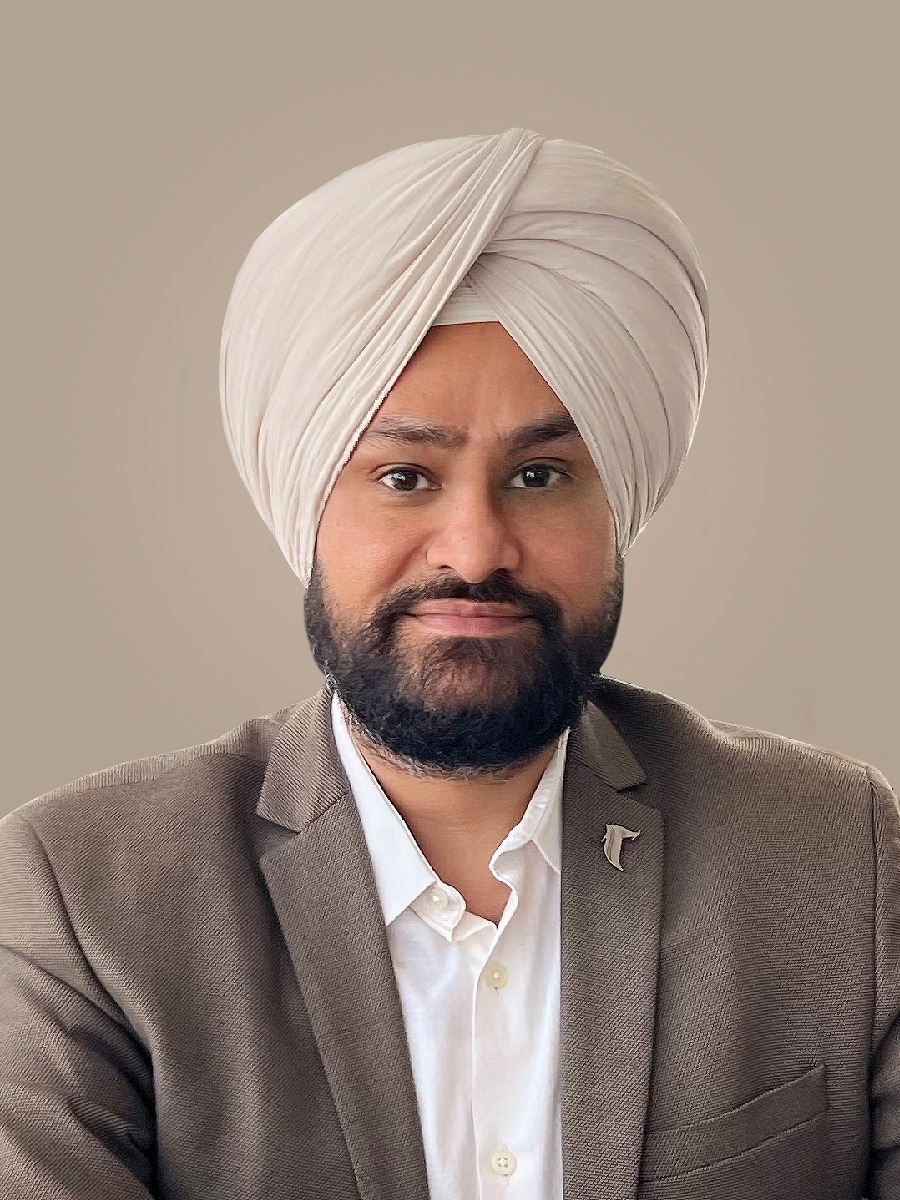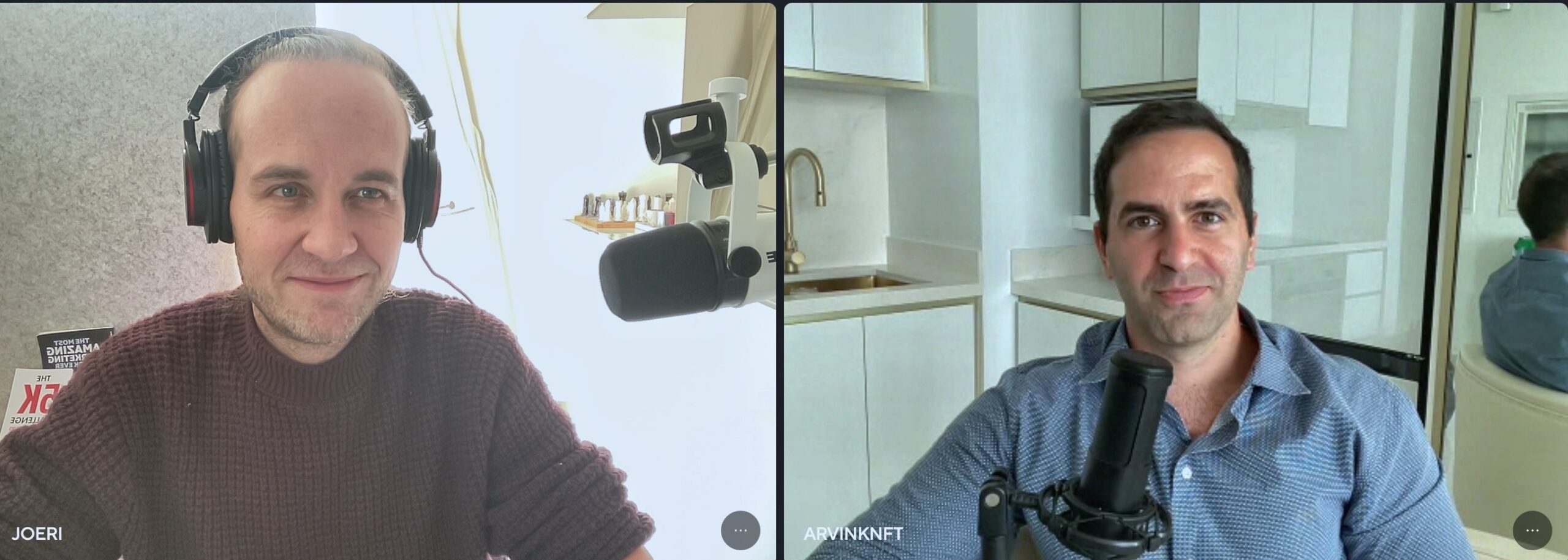Vikram R Singh, founder and CEO of Antier, shares his journey from accidental entrepreneur to leading a 700-member blockchain consulting firm that has survived three bear markets through vision and purpose-driven growth. Recognized by The Economic Times as one of Asia’s Most Promising Business Leaders, and a founding member of Davos Web3, Vikram brings a rare combination of real-world leadership and long-term conviction to the Web3 space.
• Blockchain attracted Vikram in 2017 through its vision of financial inclusion and asset control without intermediaries
• India has the tech talent to become the Web3 capital of the world, only needing clearer regulations and better storytelling
• Growth requires both attaining and sustaining levels, being where it matters consistently
• Philosophy of "not being defeated" despite facing challenges helps navigate bear markets
• Blockchain and AI are complementary—blockchain provides trust, while AI delivers intelligence
• Web3 marketers should translate transformation rather than technology, focusing on problems solved not features
• Partnerships should feature equal risk/reward, matching energy levels, and alignment on non-negotiable direction
• Antier's Co-Pilot Program supports visionary founders with customized investment models
• Successful Web3 founders focus on their first hundred users and iterate quickly rather than chasing perfection
If you think this episode could help others, please share it with them. Hit the subscribe button if you're not following the show yet, and consider leaving a five-star review to help us reach a bigger audience.
Vikram AR Singh on Building Blockchain Businesses That Survive Bear Markets
Most Web3 companies chase hype cycles and crash when markets turn. Vikram R Singh took a different path.
As founder and CEO of Antier, one of India's leading full-stack blockchain consulting firms with over 780 team members, Vikram has been recognized as one of Asia's most promising business leaders by the Economic Times. He's also a founding member of Davos Web3, but his credentials aren't what make him interesting—it's his contrarian approach to building blockchain businesses.
Vikram started as a bedridden entrepreneur in 2004 with just a home PC and has built one of Asia's largest blockchain consulting firms. His secret? He emphasizes systems over brands, trust over hype, and long-term vision over short-term gains. While competitors scaled back during downturns, Antier maintained continuous growth, surviving three bear markets while scaling 2x-3x consistently.
In this interview, he reveals why most Web3 companies fail because they chase features instead of solving real problems—and shares his framework for building businesses that thrive when others merely survive.

Vikram R Singh, CEO at Antier, on the Web3 CMO Stories podcast
The moment blockchain clicked for you was in 2017. What triggered that shift from Web 2.0 to full blockchain focus?
"It goes back to 2017 when we had a milestone—we bought a building and shifted to new infrastructure with 75 team members. I was looking for the next growth driver when crypto was making noise. When I dug deeper, I was completely sold on the shared vision behind its invention."
The awakening wasn't just technical—it was philosophical. Vikram saw blockchain's promise of complete asset control and financial inclusion. "If you wanted to send money to the UK, it was easier to take a flight and deliver it manually. Banks represent the value you own but may not hold the actual money. Blockchain offered complete control over assets—that was the main promise."
But what sealed it was realizing blockchain "is not just the truth but can build truth and accountability within the system itself, reducing third parties and human interventions in any value chain." This vision drove Antier's complete transformation from a Web 2.0 company to a blockchain-focused firm.
Most Web3 founders struggle with positioning. What fundamental mistake do you see repeatedly?
"Founders tend to talk more about features instead of the problems they're solving. At the end of the day, we need to focus on the problems we're addressing."
Vikram's framework is simple but powerful. Before promoting anything in Web3, you must answer three questions:
- Why now? - What makes this the right moment for your solution?
- Why you? - What unique advantage do you bring?
- Why should I care? - What problem does this actually solve for users?
"Don't scale in silence—test signals early. It's very important to iterate until you find product-market fit, then keep rebuilding your narratives around the problem you're solving."
His philosophy extends to marketing approach: "Hype is being loud. Trust is being quiet. The greatest startups in Web3 were built in bear market times when they didn't need hype because they were solving real problems."
You've survived three bear markets while maintaining growth. How did you manage continuous customer flow during downturns?
"We kept perfecting our delivery, work management, and most importantly, our marketing. When we perfected our go-to-market, we started scaling 2x-3x consistently. Even in bear markets, we have continuous flow of inquiries and new customers asking for solutions."
The key was vision-driven leadership during chaos. Vikram lives by two core philosophies that guided the team through difficult periods:
- "I'm here for a purpose—to grow into a mountain, not reduce myself into a grain of sand"
- "You will face many defeats, but you must not be defeated"
"When leads flow went from X to Y during bear markets, we remembered we're here not to be defeated. We stood tall and strong through all challenges, registering 35-40% year-over-year growth over the last three years."
You talk about building systems, not brands. What's your mental model for sustainable growth?
"We always believe we're not building brands—we're building a sustainable system that scales. Our goal is focused on systems which are sustainable, not one-time trades or valuations."
This philosophy shaped Antier's ecosystem approach. Beyond consulting and development, they launched NE Labs as a venture studio, helping others build products while incubating their own. "Not only do we build our own products, but we help people build their products within that venture studio."
Vikram's growth philosophy challenges conventional wisdom:
Traditional Approach | Vikram's System Approach |
|---|---|
Be everywhere | Be where it matters, consistently |
Attain growth levels | Sustain growth levels |
Chase market trends | Build principled progress |
Focus on features | Solve real problems |
"Growth is not about being everywhere. Growth is about being where it matters and consistently enough. Growth is not about attaining one level—it's also sustaining that level."
Your contrarian take is that blockchain is "direction, not disruption." What do peers miss about long-term thinking?
"We move fast, but our compass is principled progress. We believe in solving real-world problems, and that influences how we present our message and narrative so end users can understand it."
While others chase short-term gains, Vikram focuses on milestone-based incentives over hype-based motivation. This approach proved crucial during India's regulatory uncertainty, when many blockchain companies had to relocate.
"India has always been known for tech talent. Most tech development happened here when crypto was invented. We've trained over 5,000 people, with 95% of our resources learning blockchain after joining us. We don't need to justify what we are today—we need clearer regulations so we can unleash the potential people are waiting for."
His execution-under-chaos philosophy sets Indian builders apart: "The world can learn about execution under chaos from India. Even when there's uncertainty, execution remains consistent."
For Web3 founders starting today, where should they focus first?
"Focus on your users—what they need, how they need it, when they need it. Your first 100 users and followers are very important."
Vikram's practical framework for new founders:
- Start locally, then globalize - Build strong foundations before expanding
- Test signals early - Don't scale in silence; validate continuously
- Iterate toward product-market fit - Keep rebuilding narratives around problems
- Be the interpreter of intent, not jargons - Sell value creation, not technology
"People don't adopt technology—they adopt stories that reflect them, where they can find themselves as end users. Talent helps you open the door, but character keeps it open. It's not just one good graphic or message that gets followers; whatever you offer must be sustainable."
Most overrated trend in Web3? "Hype-driven marketing and feature-focused positioning. Founders get caught up in being loud instead of building trust through real problem-solving."
Most underrated practice? "Building during bear markets. When everyone else cuts back, that's when you can gain the most ground by staying consistent and focused on delivery."
A philosophy that guides your decisions? "Two quotes shape everything: 'I'm here for a purpose—to grow into a mountain, not reduce myself into a grain of sand' and 'You will face many defeats, but you must not be defeated.'"
If you could change one thing about the industry? "The focus on short-term valuations over sustainable system building. Too many companies optimize for one-time trades instead of building systems that scale and endure."
"Hype is being loud. Trust is being quiet. The greatest startups in Web3 were built in bear market times when they didn't need hype because they were solving real problems. That's the reason they were able to scale and grow."
Vikram's approach challenges everything we think we know about building in Web3. While others chase hype cycles, he builds systems. While others scale back during downturns, he doubles down on delivery and vision-driven leadership.
His framework—focusing on problems over features, systems over brands, and trust over hype—offers a blueprint for sustainable blockchain businesses that thrive regardless of market conditions.
Want to learn more about Vikram's approach? Visit antier.solutions or connect with their 700+ person team on LinkedIn. For visionary founders looking to build Web3 unicorns, check out their Co-Pilot program that provides both funding and expertise.






